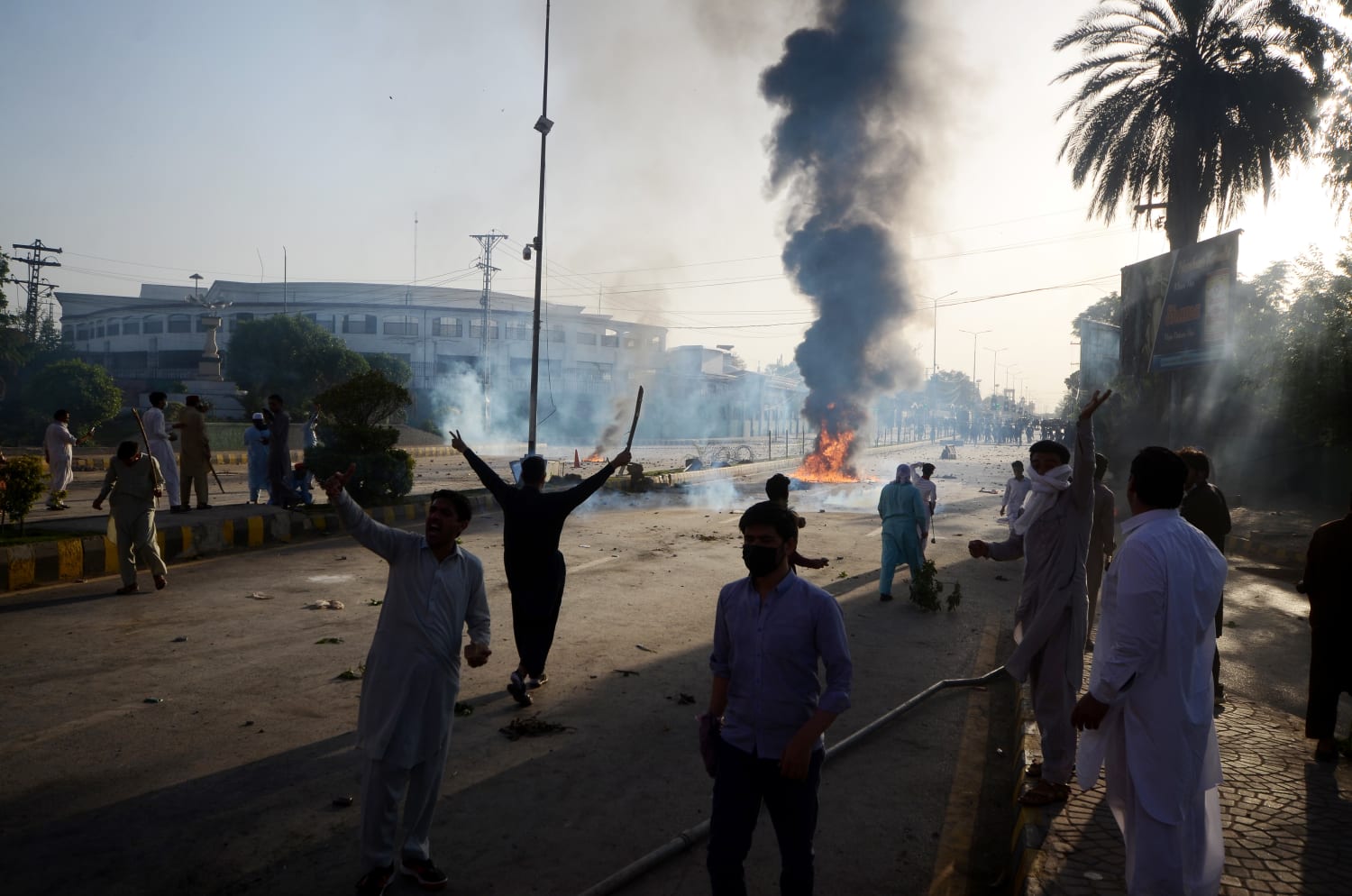
On Tuesday, Khan appeared before a special tribunal of Pakistan’s Election Commission, which said he would be indicted next week on charges of publicly insulting commission officials last year.
He also appeared before another agency on charges that he exposed an official secret document last year when he waved it at a rally and said it was proof of a U.S. plot to oust him from power. Khan has since backed away from the claim, which both the White House and the Pakistani military denied.
“I will prove that each and every case they filed against me is forged and bogus,” Khan said in a speech to his followers on Monday.
Khan still has strong grass-roots support, and his dramatic May 9 arrest at a courthouse in the capital, Islamabad, set off deadly mass protests aimed at the military that ended only when the Supreme Court ordered him released. Thousands of his supporters have since been arrested, including senior leaders of his party, Tehrik-i-Insaaf, also known as the PTI.
Khan has accused the military — known in Pakistan as the “establishment” — of pressuring top officials to quit his party in what he calls “forced divorces.”
A spokesperson for the military said Khan’s allegations were “totally frivolous, baseless, misleading and devoid of any truth.”
Last week, dozens of PTI members said they were quitting the party to form their own, saying Khan was promoting “politics of hatred and confrontation.”
Khan also called on the U.S. and other Western governments to condemn what he says are Pakistani authorities’ abuses.
“Surely this is not what the Western countries should want,” he said. “They should just speak out against it.”
Khan’s successor as prime minister, Shehbaz Sharif, has said the government has every right to prosecute protesters accused of criminal intimidation, rioting and assault, comparing them to the Jan. 6 rioters being prosecuted in the United States.
The White House says it does not take positions of support for political candidates or parties in other countries, but does call for the respect of democratic principles around the world.
“We just want to make sure that whatever happens in Pakistan is consistent with the rule of law, with the constitution,” Secretary of State Antony Blinken told reporters after Khan’s arrest in May.
From allies to nemeses
The political situation in Pakistan is “extremely volatile,” said Farzana Shaikh, an associate fellow in the Asia-Pacific program at Chatham House, a London-based think tank.
“It’s no secret that the institution that really wants Khan out of power and possibly disqualified at least for the next five to 10 years is the military,” she added.
Though Pakistan has long aspired to be a functioning democracy, that ambition has been interrupted by several periods of direct military rule. Multiple political leaders have been assassinated, and no prime minister has ever completed a full five-year term.
Pakistan has also been struggling with an economic crisis, although the threat of a sovereign default has receded after the International Monetary Fund approved a $3 billion bailout deal this month.
اكتشاف المزيد من ينبوع المعرفة
اشترك للحصول على أحدث التدوينات المرسلة إلى بريدك الإلكتروني.
